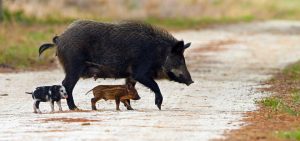
With the adjournment of the first session of the 56th Oklahoma Legislature on Friday, legislators’ ability to fill the nearly $900 million state budget shortfall received most of the attention. Despite the chaos at the state Capitol, Oklahoma Farm Bureau achieved several victories on behalf of its members. Below are some highlights from the 2017 legislative session.
 AD VALOREM TAXES
AD VALOREM TAXES
HB 1374 by Rep. Weldon Watson and Sen. David Holt
Allows municipalities to increase ad valorem taxes to fund public safety, upon voter approval. The measure contains an exemption for agriculture land, but the exemption easily can be removed at a future date. Oklahoma Farm Bureau believes the bill is bad policy for farmers, ranchers and rural Oklahoma. The bill was passed by the House and advanced through two Senate committees. Though it was stalled in the Senate, the measure remains alive to be heard during next year’s legislative session.

WIND
SB 477 by Sen. Joe Newhouse and Rep. Charles Ortega
Regulates obstructions to air navigation–like wind turbines–that could “endanger the lives and property of military aircraft pilots, passengers and training routes”. Though intended to protect air space, the bill directly infringes on the private property rights of Oklahomans. The measure creates zones that prohibit economic development and activity like wind turbines. By removing the landowner from the permitting process, the bill is considered a “take” of private property. OKFB is committed to supporting the military, but found SB 477 as a bill looking for a problem. The bill was passed by the Senate, but amended by the House. The measure was then tied up in the Senate, as the amended bill was not approved by a Senate conference committee.
SB 593 by Senate Pro Tem Mike Schulz and House Speaker Charles McCall
Specifies how oil and gas companies and mineral owners must be notified of new wind development. The bill also removes a loophole allowing property owners to register land as a private airport to prevent the development of wind turbines. OKFB policy supports the development and support of regulations concerning wind energy development that protect private property rights while still encouraging the development of wind energy. SB 593 does not inhibit private property rights, but instead takes them into consideration while encouraging development of wind energy. The measure passed the House and Senate and was signed by the governor on April 17.
 PRIVATE PROPERTY RIGHTS
PRIVATE PROPERTY RIGHTS
HB 1827 by Rep. John Pfeiffer and Sen. Eddie Fields
Allows any person or entity lawfully operating and in the course of business to use public roads, highways and right-of-ways for pipe and other equipment used in the oil and natural gas production process. Under the measure, the person or entity would not need permission from the bordering landowner, but instead must only receive consent from the Oklahoma Department of Transportation. HB 1827 was passed by the House, but was amended in the Senate. The bill then died in conference committee.

EXOTIC SWINE
SB 326 by Sen. Eddie Fields and Rep. John Pfeiffer
Prohibits the importation and possession of exotic swine like warthogs. Out-of-state individuals wanted to import exotic swine into high-fence facilities in Oklahoma. Farmers, ranchers and landowners in Oklahoma already face billions of dollars in damage every year from feral swine. The exotic swine had the same potential to carry disease, reproduce rapidly, and cause damage. The bill was passed through the House and Senate and is now awaiting Gov. Mary Fallin’s signature.
 OTHER
OTHER
HB 1388 by Rep. John Pfeiffer and Sen. Eddie Fields
Modifies date of operation provisions in regards to determining timeliness for a nuisance action to be brought against agricultural activities on farm or ranch land; adds the term “malicious” to those frivolous nuisance suits that qualify a defendant to recovery of attorneys fees. The bill was passed by both the House and Senate, and was signed by Gov. Mary Fallin on May 16.
HB 1373 by Rep. Dell Kerbs
Requires trailers to register with the Oklahoma Tax Commission and pay an $11 fee within 30 days of purchase. The fee would be distributed between the Oklahoma Tax Commission and the tag agent. The bill failed to advance out of the House Transportation Committee, and therefore died.
